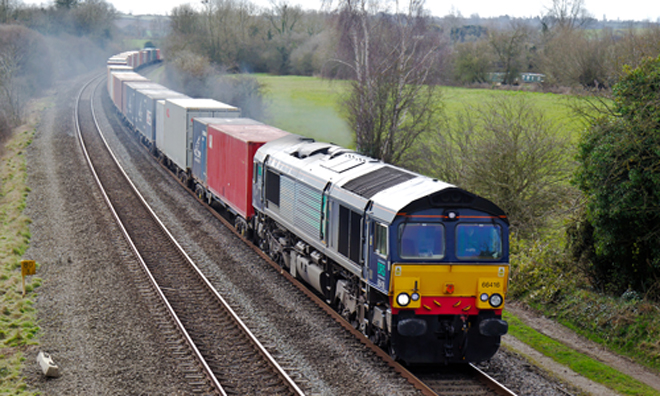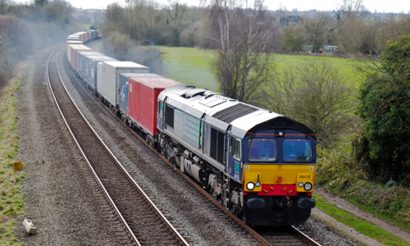Government sets out Rail Freight Strategy
Posted: 13 September 2016 | | No comments yet
The Department for Transport (DfT) has published its Rail Freight Strategy presenting its vision for how the sector can continue to grow and identifies ways in which challenges can be addressed.


The Department for Transport (DfT) has published its Rail Freight Strategy presenting its vision for how the sector can continue to grow and identifies ways in which challenges can be addressed.


Rail Minister Paul Maynard MP has today presented the DfT’s Rail Freight Strategy which has been developed in collaboration with Network Rail, the rail freight industry and its customers.
The growth of rail freight
The report sets out the government’s vision on how rail freight can continue to grow, and how the broader logistics sector and rail industry can collaborate and innovate to help relieve pressure on the road network. In addition, the publication looks at the challenges currently facing the rail freight industry including capacity, the potential for innovation, developing skills and public perceptions of rail freight. It also identifies ways in which government and industry can work together to address current issues.
According to the publication, each freight train removes the equivalent of up to 76 lorry journeys from UK roads and reduces carbon emissions by approximately three compared to road. The strategy intends to promote the role rail freight can play in helping to reduce carbon emissions.
The Rail Freight Strategy can be read in full here.
Industry reaction…
The Rail Freight Group (RFG) has welcomed today’s announcement. Maggie Simpson, RFG Executive Director, said: “The rail freight sector is changing and freight operators and their customers are working to deliver growth in new and existing markets and to be fit for the future. This strategy will help to provide the stable and supportive environment they need to do so, and we welcome its publication.”
Reacting to the publication of the Strategy, Elizabeth de Jong, director of policy at the Rail Delivery Group (RDG), said: “Rail freight is crucial to Britain, helping to ensure supermarket shelves are full, next day deliveries arrive the next day and the traffic keeps moving by taking thousands of lorries off the road.
“The sector is changing and in this strategy, the rail industry has come together to set out important actions that will support freight companies to continue to innovate. The UK rail freight industry is recognised as a dynamic and environmentally-friendly means of transport and this strategy will help companies exploit new and existing markets.
“RDG will continue to work with government and the wider industry to develop the four priority areas identified in this strategy – innovation and skills; network capacity; track access charging; and, telling the story of rail freight.”
Delighted that the publication has been issued, a spokesperson from rail freight provider Freightliner said: “The Strategy emphasises the importance of having a clear policy framework to support rail freight to achieve its potential,” said Russell Mears, Freightliner European CEO and Chair of the Rail Delivery Group’s (RDG) Freight Group.
“It sets out a clear vision for how rail freight can continue to grow and identifies opportunities for industry partners to collaborate and innovate in order to help deliver increased environmental and air quality benefits, relieve the pressure on our road network and increase the productivity of British businesses.
“We recognise that it will be for the industry, including the rail freight operators, to deliver the vision and we welcome the sense of direction that this Strategy provides in helping the industry plan ahead.”



